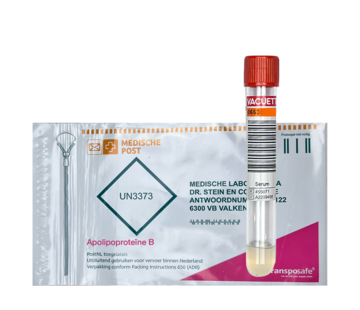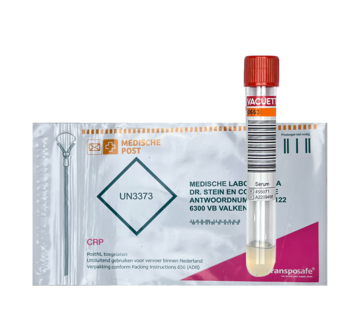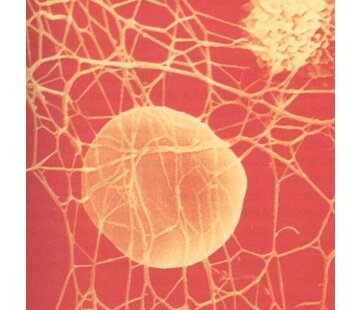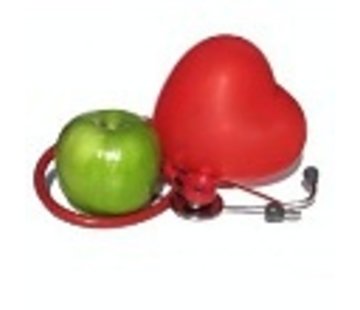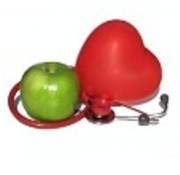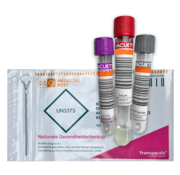Heart and Vascular diseases
This test is used to estimate the risk of cardiovascular disease.
The following tests are performed: cholesterol, HDL cholesterol, triglycerides, LDL cholesterol, hs-CRP.
- Cholesterol - the biggest contributor to cardiovascular disease
- Splitting of HDL and LDL cholesterol - Cholesterol consists of good cholesterol (HDL) and bad cholesterol (LDL)
- Tryglicerides - Incorporated fat content
- Hs-CRP - To predict in healthy individuals whether there is an increased risk of developing cardiovascular disease
Cholesterol
Cholesterol plays an important role in the body in building tissues and organs and in the production of certain hormones and bile acids. A small part of all cholesterol is found in the blood in the form of fat particles, so-called lipoproteins. The desired amount of cholesterol is 5.0 mmol/l or lower. Here the risk of cardiovascular disease is not increased. With a cholesterol between 5 mmol/l and 6.5 mmol/l, the risk of cardiovascular disease is slightly increased. A cholesterol above 6.5 mmol/l increases the risk of cardiovascular disease. Based on a lipid profile and other tests, the cause of the high cholesterol can be further investigated.
HDL and LDL cholesterol
Cholesterol is formed in the liver. 70-80% of LDL is absorbed in the liver, adrenal glands, and gonads (testes and ovaries). The LDL that remains in the bloodstream is eventually taken up by cells that can cause vascular wall fatigue. LDL cholesterol is also called bad cholesterol because too much LDL increases the risk of heart attack.
HDL provides transport of "excess" cholesterol from cells back to the liver (reversed cholesterol transport). HDL is formed in the liver, after which it enters the blood circulation and absorbs cholesterol from cells. Cholesterol is removed from HDL in the liver. In the liver, cholesterol can be removed from the body with the bile. HDL is also called good cholesterol, because an increased concentration of HDL is associated with a reduction in the incidence of cardiovascular disease. The role of HDL is more complex, it also plays a role in inflammation, infection and more processes.
Cholesterol ratio
In general, one can remember the 3-4-5 rule. The LDL cholesterol lower than 3, the cholesterol ratio lower than 4 ( you divide your result total cholesterol by the result HDL) and total cholesterol lower than 5.
Triglycerides
The test measures the amount of triglycerides in blood. Triglycerides form the fat supply in the body and are usually stored in fat tissue. Part of the triglycerides circulate in the blood to provide fuel for the muscles. After a meal, blood contains more triglycerides because they are then transported from the intestine (food intake) to the adipose tissue (fat storage). Therefore, the determination of triglycerides should only be performed if a meal has not been consumed shortly before.
Hs-CRP
To predict in healthy individuals whether there is an increased risk of developing cardiovascular disease. As a test for the risk of cardiovascular disease, a more sensitive determination of CRP is used: hs-CRP (hs = high sensitive).
In addition to the usual CRP assay, an ultrasensitive CRP assay, hs-CRP high sensitive CRP or C-reactive protein (CRP), ultra-sensitive, has also come onto the market, which can demonstrate very low-grade inflammatory reactions. Several recent studies have shown that the hs-CRP, particularly when determined in combination with total cholesterol and HDL cholesterol, is a strong predictor of future coronary disease in apparently healthy individuals. This study was conducted because it is suspected that low-grade, chronic inflammation plays an important role in the process of arteriosclerosis.
Note that there are more factors besides the above tests that increase the risk of cardiovascular disease: smoking, obesity, alcohol, heredity, too little exercise, etc. A good test result is therefore not a blank cheque.



